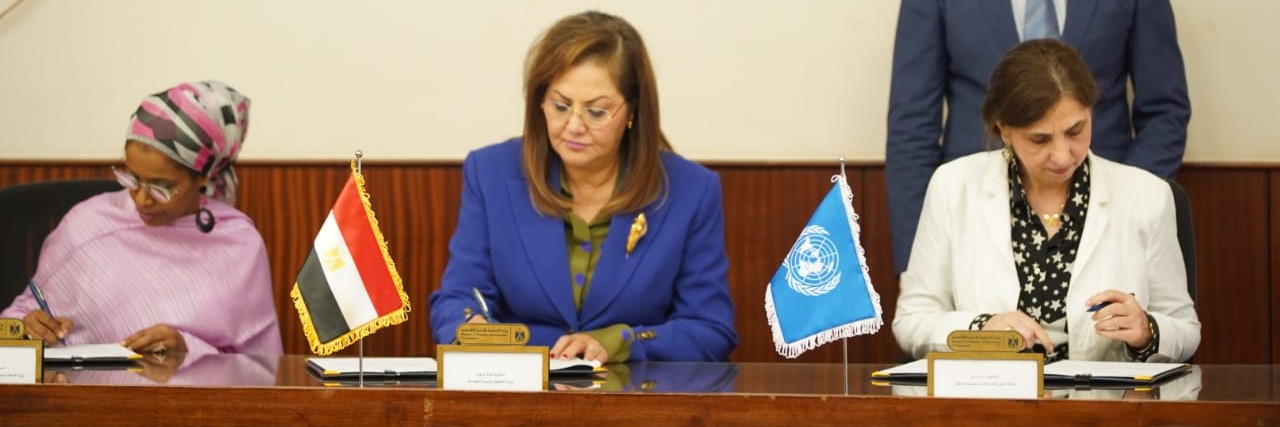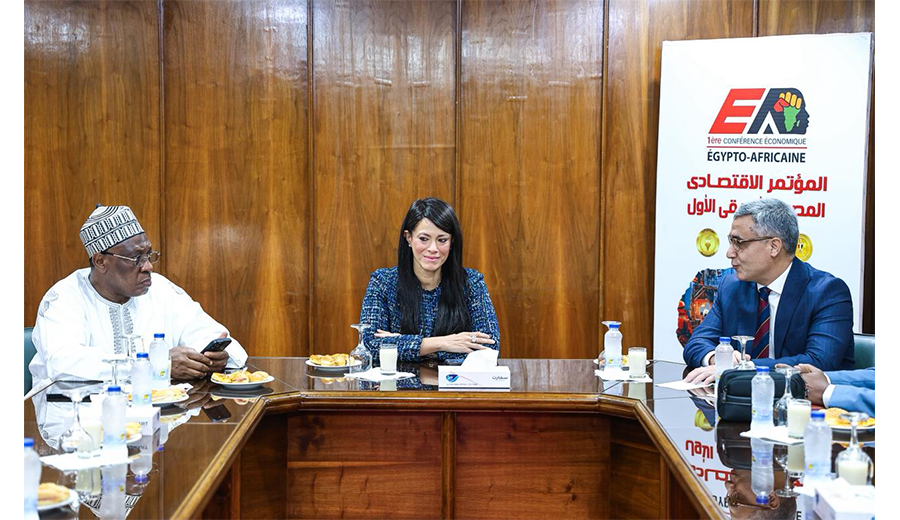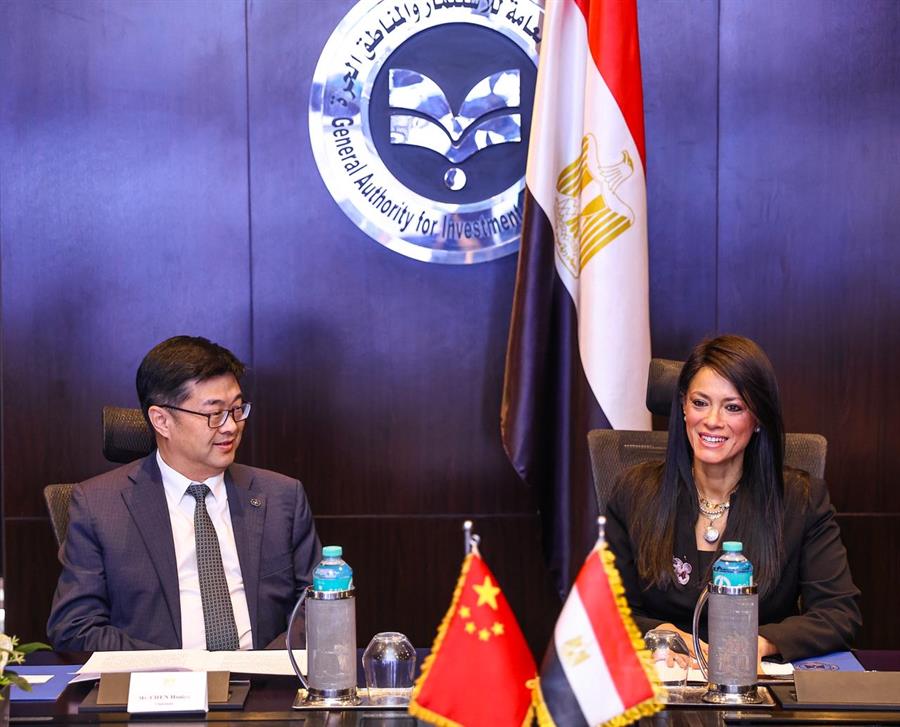Egypt’s Planning Ministry to assist Djibouti in implementing population census

31 October 2023
H.E. Dr. Hala El-Said, Egypt’s Minister of Planning and Economic Development, signed recently a memorandum of understanding (MoU) between the Ministry and the Ministry of Economy and Finance in charge of industry in Djibouti, in the presence of Mrs. Safia Mohamed Ali, Minister of Investment and Private Sector Development of the Republic of Djibouti, and cooperation with the United Nations Economic and Social Commission for Western Asia (ESCWA).
The signing ceremony witnessed the presence of Ms. Rula Dashti, Under-Secretary-General of the United Nations and Executive Secretary of ESCWA.
The agreement stipulates cooperation in the field of implementing the electronic population census in the Republic of Djibouti.
The MoU signing witnessed the presence of Major General Khairat Barakat, Head of the Central Agency for Public Mobilization and Statistics (CAPMS), Ambassador Hisham Badr, Assistant Minister for Strategic Partnerships, Excellence and Initiatives, Eng. Ashraf Abdel Hafeez, Assistant Minister for Digital Transformation Affairs.
The MoU signing witnessed the presence of Kamal Nasr, Assistant Minister for Technical Office Affairs, Ambassador Hazem Khairat, Director of the International Cooperation Office, Ambassador Ahmed Bakr, Deputy Assistant Minister of Foreign Affairs, Counselor Mohamed Ibrahim, Acting Ambassador of Djibouti in Cairo, Mr. Ibrahim Abdi Hadi, Director General of the Institute of Statistics in Djibouti.
During the signing ceremony, El-Said pointed out the importance of signing the memorandum of understanding between Egypt and Djibouti in the field of implementing the E-population census with the Republic of Djibouti, within the framework of implementing the third general census of population and housing in Djibouti during the years 2023-2024.
El-Said explained that the memorandum is the first cooperation between the two countries in the development field, specifically in the field of preparing surveys and censuses and developing development databases, stressing the depth of the close relations between the two countries.
She stressed that cooperation between the two countries within the framework of the memorandum of understanding includes the use of technology and its advanced mechanisms in implementing the census by relying on tablet devices that save time and effort and ensure accuracy in data and speed of implementation and preparation.
El-Said also explained that statistical data is an essential pillar in formulating the visions and strategies necessary to achieve comprehensive and sustainable development, whether in the national or international framework, which is reflected in the economic, social, environmental, and demographic reality.
El-Said pointed out Egypt’s experience in the field of preparing surveys and censuses, through the CAPMS, as Egypt has conducted about 14 general censuses since 1882, the most recent of which is the General Census of Population, Housing, and Establishments for the year 2017.
This census placed in the hands of experts and academics a huge wealth of data, allowing room for study and specialized and in-depth research for the various sectors of the country.
The 2017 Census established a detailed, updated database on the current status of the population, buildings, housing conditions, and establishments, both at the national level and at the level of Egyptian regions and governorates.
Egypt also conducted five specialized economic censuses, the last of which was in 2017/2018.
Moreover, El-Said said that Egypt follows an evidence- and database-based planning approach in the development planning process by providing and developing databases to serve various development sectors.
The Ministry supervises many projects, including the birth and death registration system at the national level, which is based on the automation and development of health offices and the real-time registration of births and deaths in health offices.
The system aims to provide statistical data to monitor the accurate health status of citizens and provide an early warning system for mortality rates, which contributes to drawing up accurate health policies and reducing death rates, according to El-Said.
El-Said asserted that today's signing is the culmination of the efforts made over the past year to formulate a common formula for future cooperation between all parties and a model for the development partnership that brings together Egypt, Djibouti, and ESCWA.
The Minister of Planning pointed out the importance of following a participatory approach to achieve comprehensive and sustainable development, whether at the national or international level.









